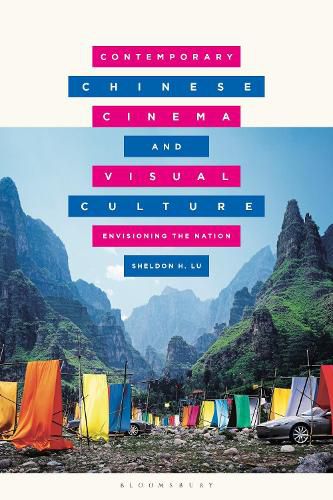Readings Newsletter
Become a Readings Member to make your shopping experience even easier.
Sign in or sign up for free!
You’re not far away from qualifying for FREE standard shipping within Australia
You’ve qualified for FREE standard shipping within Australia
The cart is loading…






Honourable Mention, Best Monograph Award, BAFTSS Publication Awards 2022
Sheldon Lu’s wide-ranging new book investigates how filmmakers and visual artists from mainland China, Hong Kong and Taiwan have envisioned China as it transitions from a socialist to a globalized capitalist state. It examines how the modern nation has been refashioned and re-imagined in order to keep pace with globalization and transnationalism.
At the heart of Lu’s analysis is a double movement in the relationship between nation and transnationalism in the Chinese post-socialist state. He considers the complexity of how the Chinese economy is integrated in the global capitalist system while also remaining a repressive body politic with mechanisms of control and surveillance. He explores the interrelations of the local, the national, the subnational, and the global as China repositions itself in the world.
Lu considers examples from feature and documentary film, mainstream and marginal cinema, and a variety of visual arts: photography, painting, digital video, architecture, and installation. His close case studies include representations of class, masculinity and sexuality in contemporary Taiwanese and Chinese cinema; the figure of the sex worker as a symbol of modernity and mobility; and artists’ representations of Beijing at the time of the 2008 Olympics.
$9.00 standard shipping within Australia
FREE standard shipping within Australia for orders over $100.00
Express & International shipping calculated at checkout
Honourable Mention, Best Monograph Award, BAFTSS Publication Awards 2022
Sheldon Lu’s wide-ranging new book investigates how filmmakers and visual artists from mainland China, Hong Kong and Taiwan have envisioned China as it transitions from a socialist to a globalized capitalist state. It examines how the modern nation has been refashioned and re-imagined in order to keep pace with globalization and transnationalism.
At the heart of Lu’s analysis is a double movement in the relationship between nation and transnationalism in the Chinese post-socialist state. He considers the complexity of how the Chinese economy is integrated in the global capitalist system while also remaining a repressive body politic with mechanisms of control and surveillance. He explores the interrelations of the local, the national, the subnational, and the global as China repositions itself in the world.
Lu considers examples from feature and documentary film, mainstream and marginal cinema, and a variety of visual arts: photography, painting, digital video, architecture, and installation. His close case studies include representations of class, masculinity and sexuality in contemporary Taiwanese and Chinese cinema; the figure of the sex worker as a symbol of modernity and mobility; and artists’ representations of Beijing at the time of the 2008 Olympics.